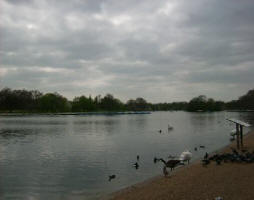Topics
- Regional water observation mechanism
- Regional Cooperation Assessment
- Water Quality Monitoring (JP)
- Water scarcity and drought (JP)
- Groundwater (JP)
- Waste water reuse (JP)
- Shared Water Resources Management (JP)
- Linking rural development and water management (JP)
- Waste management
- Water institutions
- Climate Change
- Floods
- Desalination
- Right to Water
- Irrigation
- Satellite data
- Water reports & data
- Hydrology
- Sanitation
- Gender and IWRM
- ArabWAYS
- Non-Revenue Water
- Virtual Water & Water Footprint
- WANA Water Panel
- Water Demand
- Water Governance
- Water Pricing
- Water accounts
- Water nexus Energy
- Geosciences
- Rural Management
 Linking rural development and water management - overview
Linking rural development and water management - overview
| Released | 22/03/2006 |
|---|
Under the Second Pillar of the Common Agriculture Policy, Rural Development programmes aim at improving the environment and the countryside by means of support for land management. These programmes compulsory include agri-environmental measures that are focusing on adapting local agricultural land management for mitigating particular environmental problems. In the Mediterranean area, water quantity as well as water quality are critically influenced by agricultural land use. Hence, there is a need to link planning of rural development and water management to optimise possibilities and resources in addressing common goals.
Main Mediterranean specificities
- In many Mediterranean areas intensification of agriculture leads to increased irrigation and when combined with non proper practices has irrational impacts on water resources.
- Pesticide and fertilizer use, the latter also for irrigated organic farming, together with erratic rainfall result in either slow residual water pollution or contribute to peak pollution concentrations creating chock impacts in e.g. coastal areas.
- Non adequate agricultural land management practices often increase vulnerability to soil erosion which can negatively disturb the soil water house holding and can increase sediment loads in water.
Main challenges
Combining water management plans with rural development programmes in view of mitigating negative impacts of:
- intensification of agriculture
- increase of irrigation and unsustainable water use practices
- residual and peak water pollution by agricultural land management
- soil erosion related to non adapted land management practices influencing sediment loads and soil-water balances
Main recommendations
- Development of knowledge on pressures and impacts from agriculture on water in Mediterranean areas
- Identification and assessment of actual impact and efficiency of agri-environment policy measures, e.g. focusing on water quality and quantity
- Development of exchange on best practices for rural development planning addressing water management issues
- Create better coordination between water management and rural development planners
Main particularities with regard to the WFD
In Mediterranean countries roughly between 50 and 70 percent of water use relates to agricultural demands hence in order to realize many of the WFD objectives proper and sustainable agricultural land management is required. This is the aim of the Axis 2 of the Rural Development policy. Under the CAP, Rural Development has access to financial resources to co-support the realization of these plans. River Basin Management plans should look at strong synergies with Rural Development agri-environmental measures as means of achieving their (common) goals.
 you are not logged in
you are not logged in





